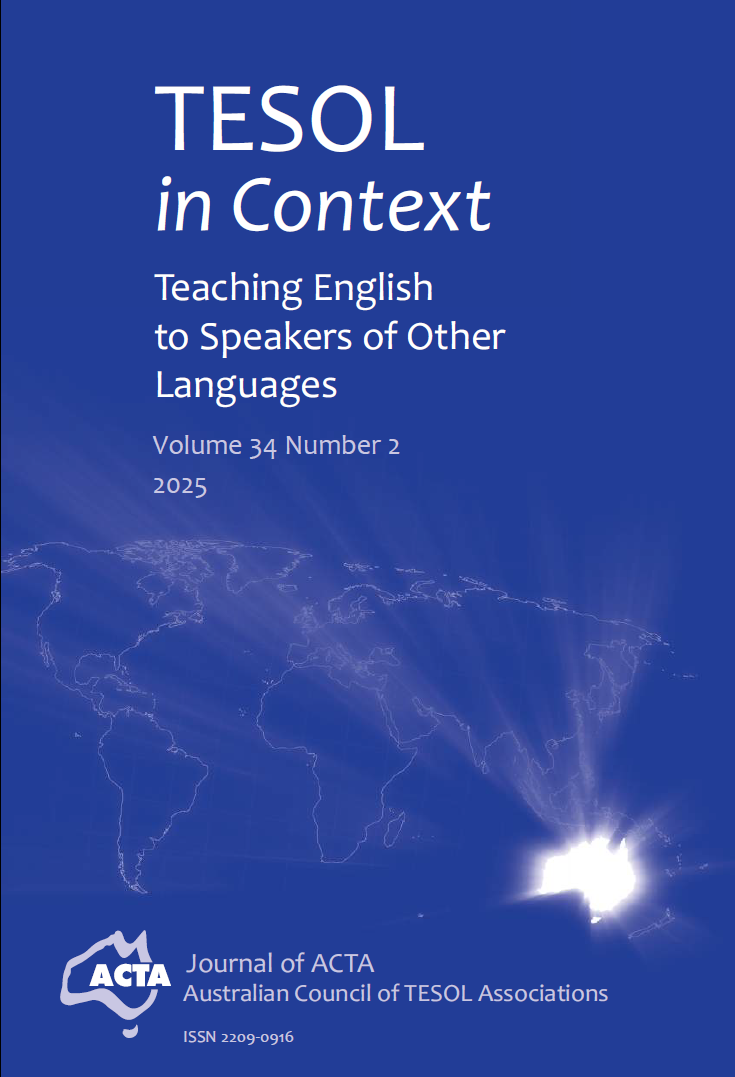Examining the situational contexts and language use in multilingual writing for teacher capacity building
DOI:
https://doi.org/10.21153/tesol2025vol34no2art2205Keywords:
multilingual writing, situational analysis, linguistic analysis, register, secondary science writingAbstract
Analyzing student writing samples situationally and linguistically allows teachers to better grasp the registers of secondary writing and the experiences of multilingual learners of English (MLE). Using a qualitative case study methodology, this study aims to demonstrate how to analyze the situational contexts and language use in MLE writing by comparing two different letter writing tasks completed in U.S. high school science courses. The data sources included ethnographic interviews with MLEs and their science teacher, and student writing samples from refugee-background MLEs. The results indicate similarities and differences in the situational contexts of the two writing tasks, leading to the use of clauses and noun phrases for different functional reasons. Specifically, variations in communicative purposes, teacher expectations, and interactions among the participants resulted in distinct writing processes and experiences. The study provides insights into how MLEs functionally employed clausal and phrasal linguistic features to achieve their writing goals. The study offers practical implications for teachers and teacher educators to develop register awareness and enhance support for multilingual writers across content areas.
Downloads
Published
Issue
Section
License
Copyright (c) 2025 TESOL in Context

This work is licensed under a Creative Commons Attribution-ShareAlike 4.0 International License.






